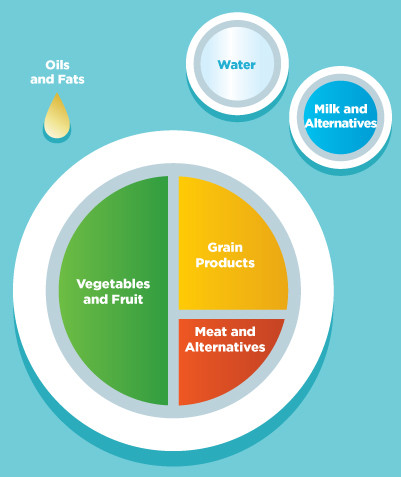
Eating a heart-healthy diet will help you prevent heart disease and recover more quickly from a cardiac event or procedure.
What is a heart-healthy diet?
A heart-healthy diet is a balanced diet consisting of a variety of whole foods. This includes cooking at home more often to avoid eating processed foods, and eating regular meals, where half your plate is filled with fruits and vegetables.
Fraser Health cardiac dietitians have designed a Healthy Heart Nutrition Booklet to guide your heart-healthy meal-planning. Adopting a heart-healthy diet is healthy at any age. It can help to prevent heart disease and recover more quickly from a cardiac event or procedure.
Heart healthy eating includes:
- Eat 5-7 servings of fruits and vegetables per day.
- At lunch and dinner fill Half Your Plate with vegetables.
- Try to eat a plant-based protein each day such as beans and lentils.
- Choose healthy fats: avocado, unsalted nuts, seeds, natural peanut butter, olive oil.
- Eat fatty fish with Omega 3s twice a week (salmon, trout, mackerel, sardines).
- Choose whole grains: oatmeal, barley, whole grain breads and pasta, brown rice, quinoa, millet.
- Avoid processed foods with white flour or added sugar.
- Choose lean meats and eggs, avoid processed meats, such as deli meats, bacon and sausage.
- Choose lower fat dairy products, such as 2 per cent or lower.
- Add more fibre to your diet (vegetables, fruit, beans, lentils, whole grains, nuts and seeds).
- Limit salt, sugar and alcohol consumption.
The Heart and Stroke Foundation has suggestions on healthy eating, including the DASH diet, which may have a protective effect on your heart and your health.
Which foods can have a negative effect on my heart and my overall health?
Saturated and trans fats can have a negative effect on your arteries and can lead to high cholesterol. Reduce your intake of meat by having smaller portions, choosing leaner cuts, trimming visible fat and increasing plant based proteins from beans, lentils or tofu more often. Limit the amount of fat you consume from tropical oils such as coconut and palm oils. Avoid foods with partially hydrogenated oils, shortening, hard margarines, deep-fried foods and snacks such as chips and chocolate bars.
A diet high in sugar and refined carbohydrates such as white bread, white rice and candy can contribute to your risk of developing type 2 diabetes, which is another risk factor for heart disease. Replace juice and pop with water, avoid putting sugar in your hot drinks, cut down on sweets and read food labels to limit products with high-fructose corn syrup and other sweeteners.
A diet high in salt can contribute to high blood pressure. To reduce your risk, take the salt shaker off the table and replace salt in cooking by using herbs, spices, lemon juice or garlic. Avoid canned goods and processed foods high in sodium and look for low-sodium alternatives to your favourite foods. The Heart and Stroke Foundation has a good guide to reducing sodium in your diet.
How do I make my new healthy eating habits stick?
To make new healthy habits stick, experts advise setting goals, starting small, repeating what works, celebrating your successes and share goals with family and friends for support. Some people find that using a meal tracker or nutrition or healthy recipe app on their smartphone can help keep them accountable.
All B.C. residents also have free access to nutritional advice from a registered dietitian weekdays from 9 a.m. to 5 p.m. by calling HealthLink BC’s 811 hotline.
Resources
- University of Ottawa’s 10 tips for healthy eating
- Fraser Health’s Healthy Heart Nutrition Booklet for patients (available in English, Chinese, Punjabi and Hindi)
- Dietitians of Canada’s Cookspiration and EaTracker apps
- Eat Right Ontario for menu planning, recipes and grocery lists
- Brazilian government’s 10 steps to a healthy diet
- Fraser Health nutrition digital tools and apps
- Heart and Stroke Foundation’s heart-healthy recipes

